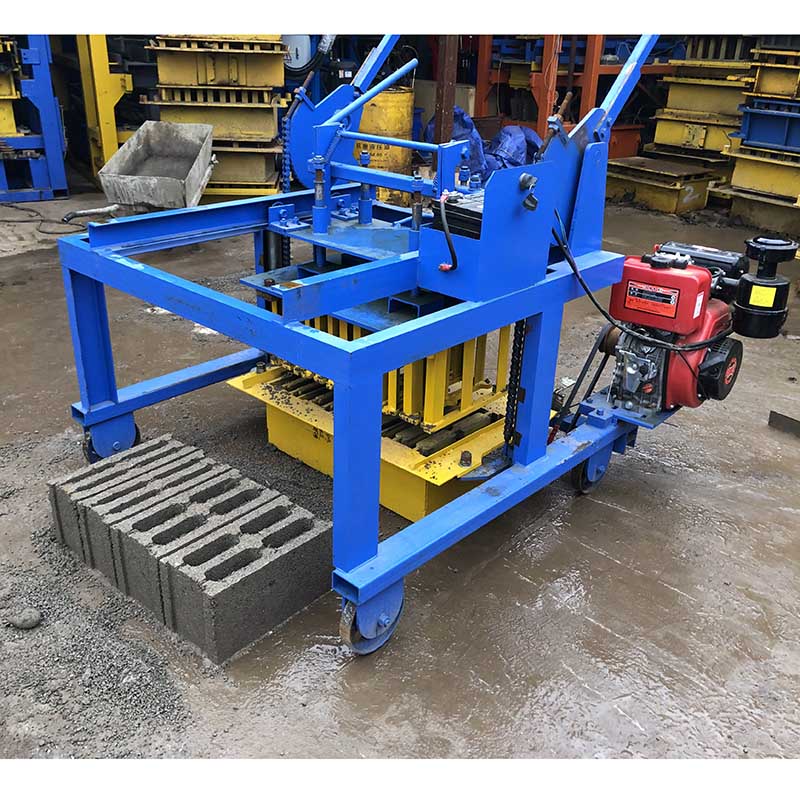
Image source:Aiwei block machine
Introduction
Cement brick machines play a pivotal role in the construction industry, automating the production of bricks and blocks used in building various structures. The price of these machines can vary significantly based on multiple factors. Understanding these influences is crucial for both manufacturers and buyers. In this article, we will delve into the various factors that impact cement brick machine prices.
1. Machine Capacity and Output
One of the primary factors influencing the price of a cement brick machine is its production capacity. Machines are available in a range of capacities, from small-scale units that produce a few hundred bricks per hour to large, fully automated systems that can churn out thousands of bricks in the same time frame. Naturally, machines with higher production capacities are more expensive due to their increased size, complexity, and output.
2. Automation Level
The level of automation in a cement brick machine significantly affects its price. Manual machines, which require more human labor, are generally more affordable but have lower production rates. Semi-automatic machines strike a balance between manual and fully automatic ones, offering better efficiency but at a moderate cost. Fully automatic machines, equipped with advanced control systems and robotics, come at a premium price due to their high degree of automation.
3. Machine Configuration
The specific configuration and features of a cement brick machine also play a role in determining its price. These configurations can include:
3.1. Block Type and Size
Machines that can produce a variety of block sizes and types, such as hollow blocks, solid bricks, interlocking pavers, and more, tend to be more expensive. Versatility in block production capabilities adds value to the machine.
3.2. Hydraulic vs. Mechanical Systems
Hydraulic systems are known for their precision and ability to apply consistent pressure during the brick-making process. Machines equipped with hydraulic systems are often pricier than those with mechanical systems.
3.3. Additional Features
Some machines come with extra features, such as color blending systems, automatic stacking systems, or mold interchangeability. These features can increase the machine’s price but may provide added value in terms of productivity and versatility.
4. Brand and Reputation
The reputation of the manufacturer or brand also plays a role in pricing. Well-established and reputable manufacturers often command higher prices for their machines due to their track record of producing reliable, high-quality equipment. Buyers are willing to pay more for the assurance of quality and after-sales support.
5. Geographic Location
The geographic location where the machine is manufactured can influence its price. Machines produced in regions with lower labor and manufacturing costs may be more competitively priced than those produced in high-cost areas.
6. Market Demand and Competition
Market dynamics, including supply and demand, can impact prices. In regions where there is high demand for cement brick machines but limited supply, prices tend to be higher. Conversely, in areas with a competitive market and multiple suppliers, prices may be more competitive as manufacturers strive to attract customers.
7. Customization
Buyers looking for customized features or designs in their cement brick machines can expect to pay more. Customization adds complexity to the manufacturing process, which often translates into a higher price.
8. Additional Costs
When considering the price of a cement brick machine, it’s important to account for additional costs beyond the initial purchase price. These costs can include shipping, installation, training, and ongoing maintenance expenses. Factoring in these costs will provide a more accurate picture of the total investment required.
9. Economic Conditions
Economic conditions, both globally and within a specific region, can impact cement brick machine prices. Economic factors like inflation, currency exchange rates, and trade policies can influence the cost of manufacturing components and materials used in the machines.
10. Government Policies and Regulations
Government policies and regulations, such as import tariffs and environmental standards, can affect the pricing of cement brick machines. Compliance with specific regulations may require manufacturers to make costly modifications to their machines, which could be reflected in the price.
11. Technological Advancements
Advancements in technology can both increase and decrease prices. While newer technologies may improve efficiency and reduce manufacturing costs, they can also add to the price if they involve cutting-edge components or innovations.
12. Maintenance and Support
Consideration of the machine’s long-term costs is essential. Machines that come with comprehensive warranties, excellent customer support, and readily available spare parts may command higher initial prices but can lead to cost savings over the machine’s lifespan.
In conclusion, the price of cement brick machines is influenced by a multitude of factors, ranging from machine capacity and automation level to brand reputation and market dynamics. Buyers should carefully evaluate their specific needs, budget constraints, and long-term goals when selecting a cement brick machine to ensure they make a well-informed investment decision. Additionally, staying informed about industry trends and market conditions can help buyers navigate the pricing landscape effectively.
